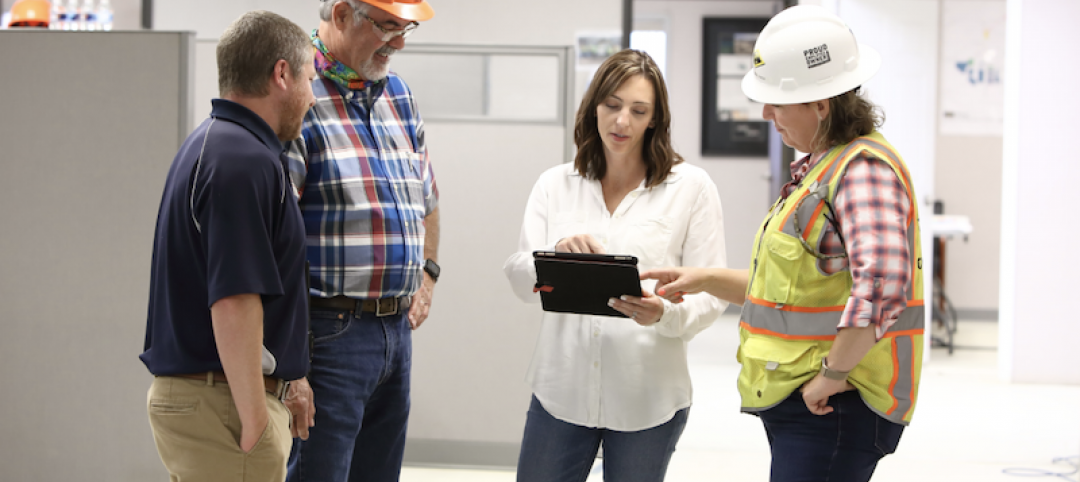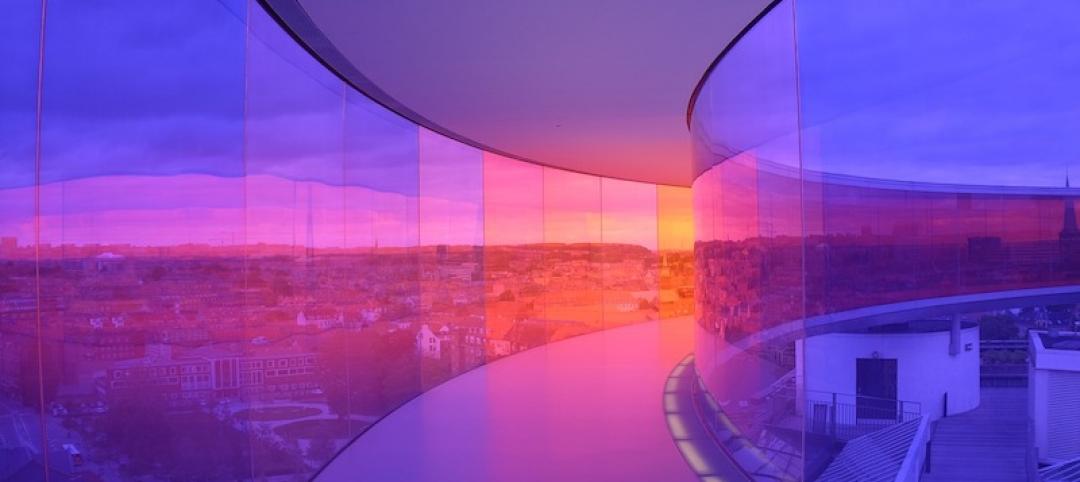FLEXLAB, short for the Facility for Low Energy Experiments, opened this summer at the Lawrence Berkeley National Laboratory. Scientists, architects, and engineers can use these four buildings to mimic the conditions inside and outside just about any building on Earth to test different elements for energy efficiency.
The buildings can simulate temperature, sun exposure—even the body heat of people sitting inside them. One of the test beds rotates 270 degrees to track the movement of the sun so that it can emulate the light exposure a building would get at different latitudes or in different seasons.
The new $16 million facility’s biggest value will come from validating models that can predict how a certain window or a shade will perform in a particular location. The facility lets researchers swap out cladding, shades, and windows to test different configurations.
About 1,000 sensors monitor multiple building dynamics such as power, airflow, and lighting. Portable “occupant thermal generators” mimic the body heat of people sitting in a space. Large cooling and heating systems can make up for the lack of temperature and humidity variation in the Bay Area.
(http://gizmodo.com/the-rotating-building-where-the-offices-of-the-future-w-1602471614)
Related Stories
Codes and Standards | Aug 12, 2021
AGC pushes for more environmentally friendly construction
Contractor trade group supports government investment, tax incentives to reduce carbon footprints.
Codes and Standards | Aug 11, 2021
Decentralized approach to codes means emissions reduction responsibility falls on local officials
Efficiency advocates focusing more on local code amendments.
Codes and Standards | Aug 10, 2021
Dept. of Energy issues model energy code determinations for commercial, residential buildings
2021 IECC offers 9.4% site energy savings.
Digital Twin | Aug 9, 2021
Digital Twin Maturity white paper offers guidance on digital twin adoption
Provides lifecycle map and an approach for incorporating digital twins.
Codes and Standards | Aug 5, 2021
Contractors can be liable for building failures many years after project completion
Personal injury suits could be brought decades after substantial completion.
Codes and Standards | Aug 4, 2021
Mass timber is a natural choice for building recycling through deconstruction
Designing wood buildings to optimize recovery of materials for disassembly aids carbon sequestration.
Codes and Standards | Aug 3, 2021
Dept. of Energy releases initial version of the Spawn of EnergyPlus software
Targets new use cases in advanced controls, district systems, and grid integration.
Codes and Standards | Aug 2, 2021
Several U.S. cities among most expensive places to build in the world
San Francisco, New York, and Boston head the domestic list.
Codes and Standards | Jul 28, 2021
American Concrete Institute creates new director of innovative concrete technology post
Aim is to attract emerging technologies for development.
Codes and Standards | Jul 28, 2021
Higher ed faces infrastructure backlog of $112.3 billion
Study recommends integrated strategic planning for best results.
















